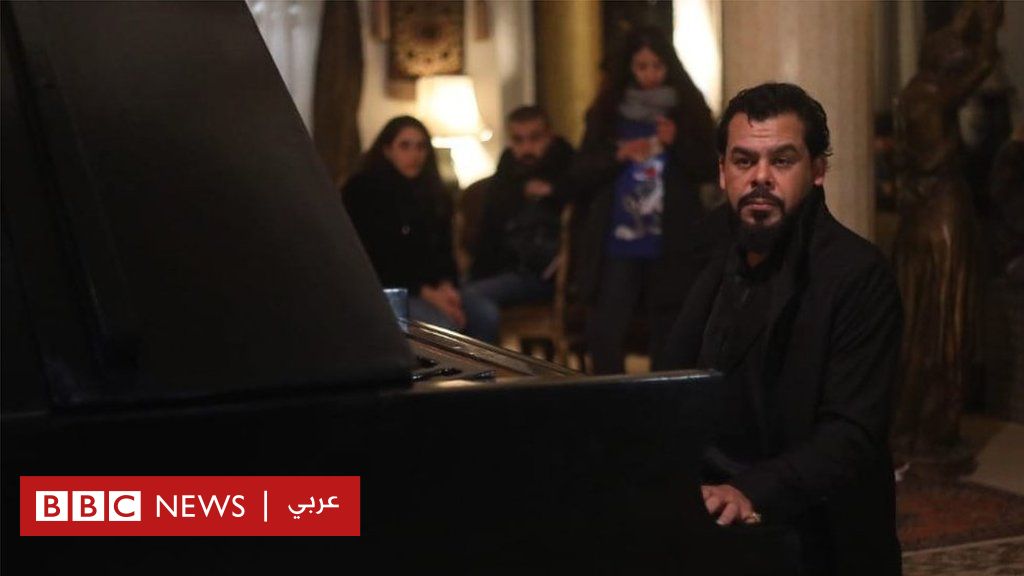The artist, Munther Rayahna, is the hero of the Jordanian movie Al-Hara
The controversy over the movie “Al-Hara” moved to the Jordanian parliament after a Jordanian government deputy demanded that the nationality of the film’s hero, Munther Rayahna, be revoked and that he be prosecuted.
Representative Suleiman Abu Yahya called on the government to revoke the nationality of the Jordanian actor because of his statements about the movie “Al-Hara”, which was shown on the Netflix platform at the beginning of this year, and some considered it “offensive to society.”
“Uglier than sin excuse”
Representative Suleiman Abu Yahya said in a legislative session of the House of Representatives: “I demand the government to revoke the citizenship of Rayhana after his fierce defense of the content of the movie Al-Hara, despite popular discontent and rejection about the omitted words in his scenes that are outside the text of the Jordanian family.”
A few days ago, the artist, Rayahna, defended the film during a telephone interview with the “Nabd Al-Balad” program on the “Roya” channel, stressing that “Al-Hara sheds light on an oppressed group in Jordanian society,” which MP Abu Yahya considered “an excuse worse than sin.”
In light of this statement, Rayhaneh confirmed that “reactions to the film were not negative, and the deeper goal of the film is to show the suffering of this category of people and their marginalization in society, not insults.”
Rihana also reserved the parliament’s discussion of the movie “Al-Hara” under the dome of parliament, and said, “It seems that there are no problems left in Jordan to discuss,” and pointed out that “in one of the parliament’s sessions, God was insulted.”
The general image of Jordanian society.
Earlier, MP Muhammad Abu Sa’ilik called for “holding accountable and prosecuting those in charge of the Royal Film Commission for supporting films that distorted the public image of Jordanian society.”
The deputy said, “Freedom of expression is protected by the constitution, and your freedom ends when it reaches the freedom of others. When your freedom reaches assault on others, your freedom stops. This is a flagrant assault on the freedom of others, their values, religion, and beliefs. The author of this film and all its financiers should be held accountable.”
He added, “If I were a resident of the neighborhood, I would have filed a case before the Jordanian courts against everyone who funded and spent on this film that depicted this neighborhood and this society in this miserable, gloomy image that is not true. We lived in these neighborhoods. We were born in these neighborhoods.”
Rayhana’s support and endorsement
After the representative submitted a request to the government to revoke Munther Rayahna’s nationality, the Jordanian actor received the support and endorsement of the pioneers of social networking sites.
Oroub Sobh said: “Who teaches the legislators that the nationality is a gift that they give and withdraw from whom they don’t want?! Only the traitors who mortgage the country and its capabilities to its enemy are the ones who do not deserve its nationality.”
Others considered that “difference of opinion does not give the right to anyone to withdraw nationality, nor to anyone to request withdrawal of nationality from others.”
The Executive Director of the Center for Justice, Attorney Hadeel Abdel Aziz, wrote: “If the representative does not know that the demand to revoke a citizen’s nationality is political and legal nonsense, then this is a calamity. The drama we see under the dome is more vulgar than the content of any drama.”
Rihanna’s critics
On the other hand, the Jordanian artist was subjected to harsh criticism, and others considered that he “does not accept the other opinion.”
Sami Al-Nawasra said: “The problem of the artist, Munther Rayahna, is that he did not accept the other opinion and talked about “artistic criticism.” He did not mention public and personal taste and values in criticism.
Others saw that the Jordanian actor, Munther Rayhaneh, “addresses the Jordanians with superiority,” as they said.
Yasser Al-Zaatrah said: “For the second time, after the controversy of the movie “Al-Hara”: the actor Munther Rayahneh addresses the Jordanians with a strange superiority. He says: “Even if we were wrong, what happened to the attack on a Jordanian work of art?” Has the Jordanian work of art become sacred ?! People have the right to defend About their society and their values according to what they see, whether you like it or not
Tweeters took to Twitter as a platform to file a complaint against the movie Al-Hara, because they saw it as “obscene language that is not in line with the customs and religion of Jordanian society.”
warm movie
- The movie “Al-Hara” is shown in a dramatic and suspenseful format, and its events take place in a neighborhood governed by its own laws, thus making it seem “closer to a state within a state.”
- Between the contrasting alleys, the “Al-Hara” characters live in a continuous struggle with poverty, destitution, and fraud.
- This theme may create a “sense of tension”, which is sometimes broken by “romantic” scenes that Ali (the film’s hero) gathers with his beloved Lana in secret.
- Then the events develop when a blackmailer takes a video clip of the two lovers in a sexual position to reach Lana’s mother, who resorts to a man who works in prostitution to “protect her daughter’s reputation”, in a scene full of social contradictions and black comedy.


